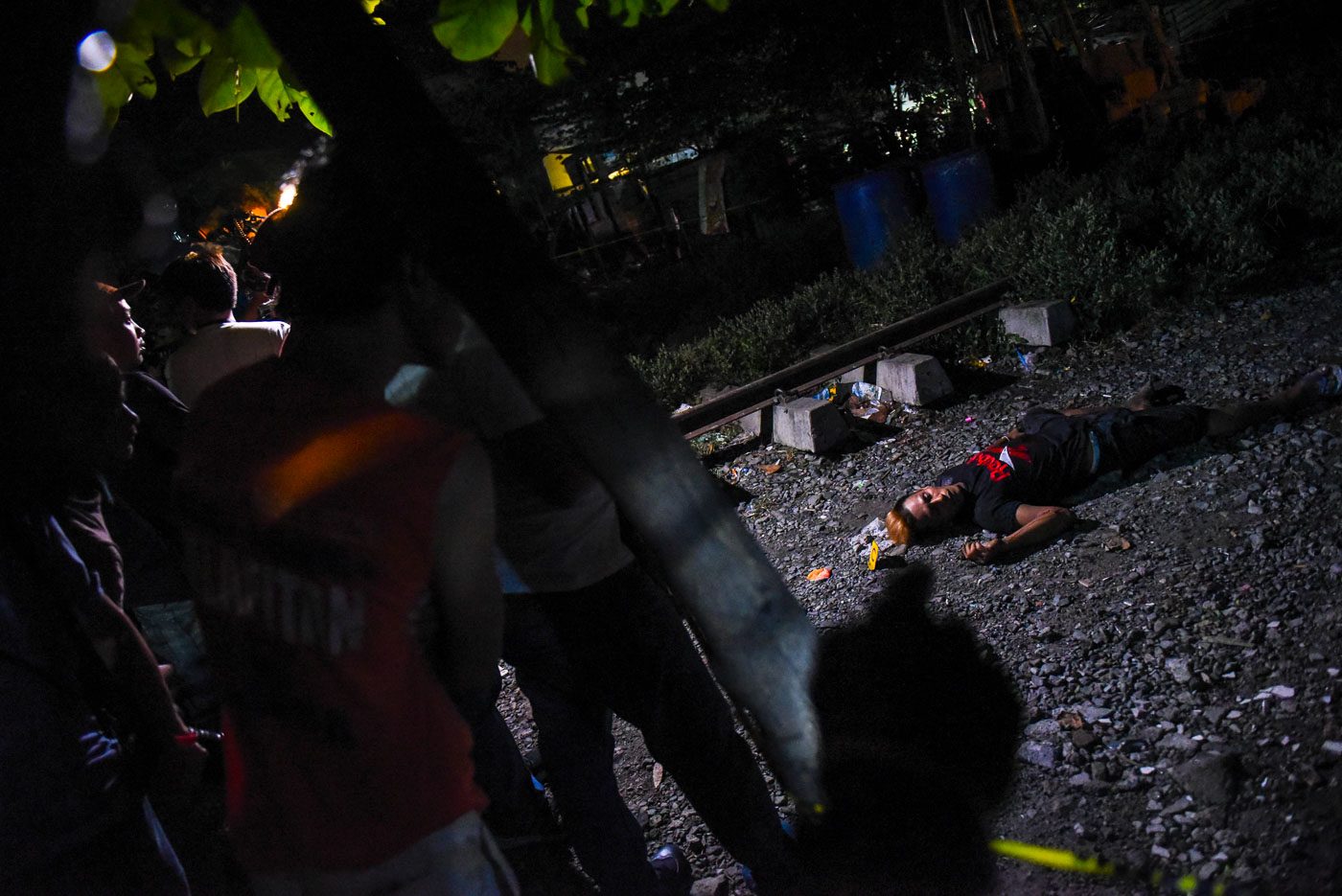SUMMARY
This is AI generated summarization, which may have errors. For context, always refer to the full article.

MANILA, Philippines – “Pressures from the top” and “financial incentives” have created an “informal economy of death” to drive police killings in the Philippines’ war on drugs, according to an Amnesty International report.
“This is not a war on drugs, but a war on the poor. Often on the flimsiest of evidence, people accused of using or selling drugs are being killed for cash in an economy of murder,” said Tirana Hassan, Amnesty International’s Crisis Response Director.
Hassan added: “Under President [Rodrigo] Duterte’s rule, the national police are breaking laws they are supposed to uphold while profiting from the murder of impoverished people the government was supposed to uplift. The same streets Duterte vowed to rid of crime are now filled with bodies of people illegally killed by his own police.”
On Wednesday, February 1, Amnesty released its report titled, “If you are poor you are killed”: Extrajudicial Executions in the Philippines’ “War on Drugs.”
It came out two days after the Philippine National Police (PNP) were ordered to pull out of the drug war because of corruption within its ranks.
Duterte’s war on drugs enjoys popular support but has been harshly criticized for its high death toll. Since July 2016, police have tallied more than 7,000 deaths in the war on drugs. More than 2,000 have been attributed to police operations but the bulk are vigilante-style killings with possible links to illegal drugs. The PNP calls these cases “deaths under investigation.” (IN NUMBERS: The Philippines’ ‘war on drugs’)
“Acting on instructions from the very top of government, the Philippines police have killed and paid others to kill thousands of alleged drug offenders in a wave of extrajudicial executions that may amount to crimes against humanity,” the international human rights organization said in its report.
Police have long been plagued by allegations of resorting to extrajudicial killings in the name of the drug war, a claim PNP chief Ronald dela Rosa has long denied. The PNP chief, who was once police chief in Davao when Duterte was mayor, insisted that they presumed regularity in all police operations.
Dela Rosa himself admitted that the presumption could no longer be made after a South Korean businessman was kidnapped and killed, allegedly by police who used the drug war as a smokescreen.
Paid to kill
In a release to media, Amnesty said its report documents “how the police, working from unverified lists of people allegedly using or selling drugs, stormed into homes and shot dead unarmed people, including those prepared to surrender.”
The report documented 33 cases involving 59 deaths. According to Amnesty International, researchers spoke to 110 people from Luzon, Visayas, and Mindanao “detailing extrajudicial executions in 20 cities across the archipelago.”
Field research was done from November to December 2016.
“The organisation also examined documents, including police reports,” said Amnesty.
According to a cop with the rank of Senior Police Officer 1, police were being paid between P8,000 (US$161) to P15,000 (US$302) per kill. The payment supposedly came in cash from “headquarters.”
Police used the term “encounter” – implying that drug personalities fought back – to mask extrajudicial killings as legitimate operations, the report said, quoting the same cop.
“We’re paid in cash, secretly, by headquarters…There’s no incentive for arresting. We’re not paid anything,” the report quoted the policeman, who has served in the PNP for over a decade, as saying. The cop is a member of one of Metro Manila’s anti-illegal drugs units. The Anti-Illegal Drugs Group (AIDG) has since been ordered dissolved by Duterte.
As a result of the cash incentive, said the cop, “it never happens that there’s a shootout and no one is killed.”
“Nanlaban (Fought back)” is the term most police officers use when asked why a drug suspect was gunned down.
Police even made deals with funeral parlors, Amnesty found, getting cash for every dead body. Cops also supposedly stole from the homes of their victims.
“The police are behaving like the criminal underworld that they are supposed to be enforcing the law against, by carrying out extrajudicial executions disguised as unknown killers and ‘contracting out’ killings,” said Amnesty.
Alarming crisis
Hassan said the situation in the Philippines “is a crisis the entire world should be alarmed by.”
“We are calling on the government, from President Duterte down, to order an immediate halt to all extrajudicial executions. We are also calling on the Philippines Department of Justice to investigate and prosecute anyone involved in these killings, regardless of their rank or status in the police or government,” she said.
But should the Philippine government prove unresponsive, Hassan said the international community should turn to the Prosecutor of the International Criminal Court “to carry out a preliminary examination into these killings, including the involvement of officials at the very top of the government.”
Duterte has been criticized in the past for his often flamboyant pronouncements when talking about drug suspects. Dela Rosa has also gotten into hot water for his public pronouncements, particularly when he encouraged “surrendered” drug users to burn the houses of known drug lords.
A crackdown on illegal drugs was among Duterte’s promises when he ran for president in the 2016 elections.
By law, it’s the Philippine Drug Enforcement Agency (PDEA) that is the lead government body in all efforts against illegal drugs. But under Duterte drug war, the PNP turned into the de facto lead agency – and face – of all efforts.
In a late-night press conference in Malacañang Sunday evening, January 29, Duterte said a huge chunk of police were corrupt. Now that the 160,000-strong PNP is barred from all anti-illegal drugs operations, the war on drugs will be spearheaded by PDEA. – Rappler.com
Add a comment
How does this make you feel?
There are no comments yet. Add your comment to start the conversation.